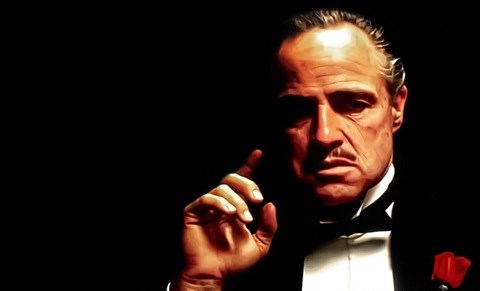
How to be a more natural speaker
Some viewed his approach as lazy, but Brando argued that he was simply keeping the dialogue as spontaneous as possible, enhancing the reality. In order to sound spontaneous, you have to be prepared. It's the preparation that allows you to be more spontaneous. Brando rehearsed his scripts for a more natural delivery but he didn't memorise them.

Why would you want to be more spontaneous?
There are two important side effects of spontaneity:
Charisma - we perceive a spontaneous person as more charismatic. Compared to a logical more rational person who never leaves a rigid structure.
Humour - saying the unexpected is a pattern of humour. It shows emotion, warmth and natural feeling.
Spontaneity, passion and enthusiasm all provide an instant connection to your audience, and an open door to information, ideas and creative thought you've already stored in your head.
Spontaneous speaking
1. Don't read your presentation out word for word - no one wants to hear you read, they want to hear you talk.
2. Don't write out your whole script - it makes it hard to resist the temptation to memorise it.
3. Write for the ear not the eyes - say it out loud. You'll find if it sounds right, it usually is right.
4. Use cue cards with prompts - short phrases to remind you where you are headed. No more than that.
5. Think of it as a planned conversation - you know where it's going but you're loose enough in the moment to make it up a little bit as you go along.
6. Rehearse, rehearse, rehearse - it feeds your mind so you can improvise in the moment.
7. Prepare yourself - you want 80% of it to be prepared and allow 20% to be spontaneous.
8. You have to have a path - when you know where the path is, you then have the ability to go off it. It gives you strength.
9. Internalise your content - rather than memorising it, understand what you are saying. That'll give you the confidence to talk about it naturally.
10. Speak from the heart - listeners want you to be real. Someone they can admire and emulate.
11. Use a conversational style - it's more powerful and engaging. Be in the moment. Be authentic. Be conversational.
12. Use nonverbal messages - eye contact, vocal expression, body posture, gestures, and facial display enhance your message. It's where your credibility, sincerity and knowledge become apparent.

About James Hurford
• Keynote talks • Consulting • Mentoring • Group training • One-to-One Coaching +44 79 3088 3695 moc.duolci@drofruhsemaj www.theconfidencedoctor.co.za















